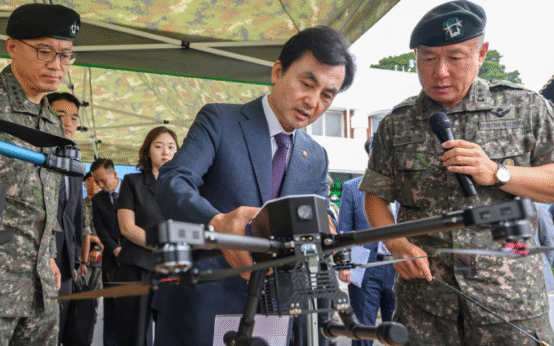United States Army has appointed Lieutenant General Joseph Hilbert as the new commander of the U.S. Eighth Army, a unit that plays a vital role in South Korea’s defense. This leadership transition comes at a time of continued security challenges on Korean Peninsula. The Eighth Army has long been central to America’s military presence in the region, and Hilbert’s appointment reflects Washington’s commitment to maintaining a strong alliance with Seoul.
Joseph Hilbert’s Military Career and His Path to Command of the Eighth Army
Lieutenant General Hilbert’s career spans more than three decades. Commissioned in 1993 as a field artillery officer, he has commanded at every level from battery to brigade. His leadership experience extends to operational deployments in Afghanistan, Kosovo, and Haiti. Hilbert also played a critical role in NATO’s European operations, where he worked with allied militaries to strengthen deterrence and interoperability.

Before being tapped to lead the Eighth Army, Hilbert served as the director of force development in the Army’s G-8 office at the Pentagon. In this role, he oversaw modernization priorities and helped shape the Army’s future force structure. His broad operational and strategic background makes him well suited for the complex challenges that come with leading U.S. ground forces in South Korea.
Acting Commanders and the Continuity of U.S. Army Leadership in Korea
Before Hilbert’s appointment, Major General William Taylor stepped in as acting commander in August after Brigadier General Sean Crockett moved to take over leadership of Army ROTC. Taylor, who previously served as operations director for U.S. Forces Korea and the United Nations Command, helped maintain continuity during the transition.
The seamless handover of leadership highlights the Army’s commitment to stability in its chain of command. By placing experienced officers in interim roles, the U.S. military ensures that operational readiness does not waver, even as leadership positions shift.
Strengthening the U.S.–South Korea Defense Alliance Under Hilbert’s Command
Hilbert’s leadership comes at a pivotal time for the U.S.–South Korea alliance. While diplomatic efforts with North Korea remain stalled, military cooperation between Seoul and Washington continues to expand. Recent joint drills focused on countering missile threats, enhancing cyber defense, and preparing for large-scale conventional scenarios.

As commander of the Eighth Army, Hilbert will oversee not only the readiness of U.S. troops but also the integration of South Korean forces into combined operations. His role will require balancing military preparedness with the broader political context of the alliance. In many ways, his appointment serves as both a military and diplomatic signal of America’s enduring commitment to South Korea’s defense.
The Future of U.S. Eighth Army Command in Korea
Hilbert’s tenure will likely focus on modernization, readiness, and alliance cooperation. The U.S. Army is investing heavily in new technologies, including advanced artillery, missile defense, and digital command systems. Implementing these within the Eighth Army will be one of Hilbert’s challenges. At the same time, he will be tasked with maintaining morale and discipline among troops stationed far from home.
U.S. Eighth Army has a history stretching back to World War II and the Korean War. Today, it continues to symbolize America’s commitment to the defense of South Korea. With Lieutenant General Joseph Hilbert taking command, the unit gains an experienced leader at a time when regional security requires steady hands, strategic vision, and strong international partnerships.


 South Korea-U.S. nuclear agreement revision gains consensus
South Korea-U.S. nuclear agreement revision gains consensus  South Korea, Japan defense ministers explore tech cooperation
South Korea, Japan defense ministers explore tech cooperation  High-Precision Map Data and the 18.46 Trillion Won Opportunity
High-Precision Map Data and the 18.46 Trillion Won Opportunity  South Korean military boost training of 500,000 ‘drone warriors’
South Korean military boost training of 500,000 ‘drone warriors’  South Korea, Ecuador Sign SECA to Diversify Latin Markets
South Korea, Ecuador Sign SECA to Diversify Latin Markets  Japan and S. Korea Expand Working Holiday Program at Summit
Japan and S. Korea Expand Working Holiday Program at Summit